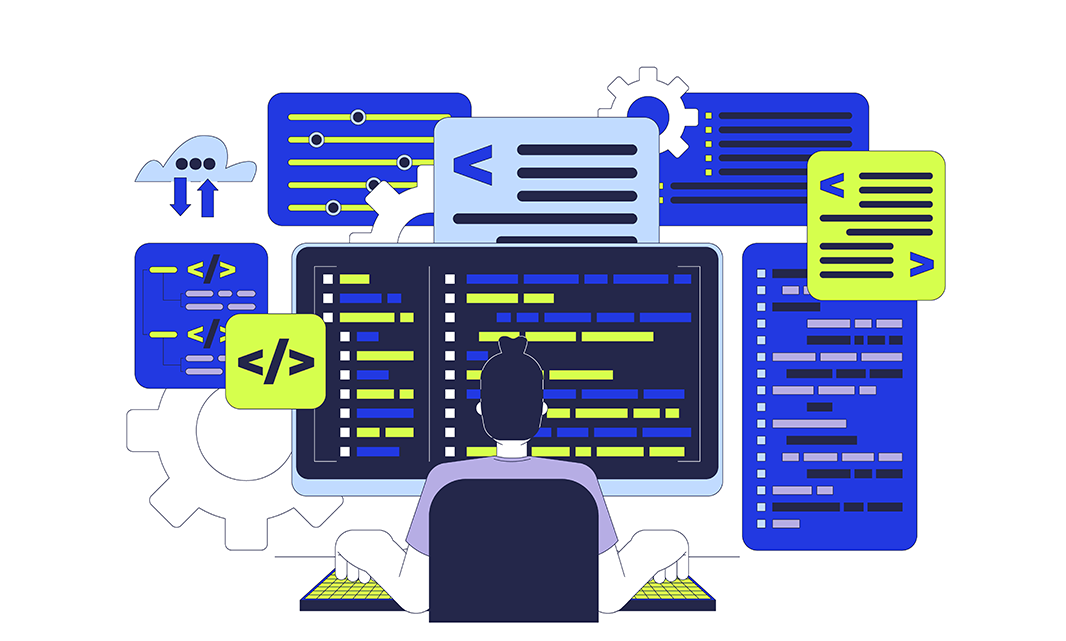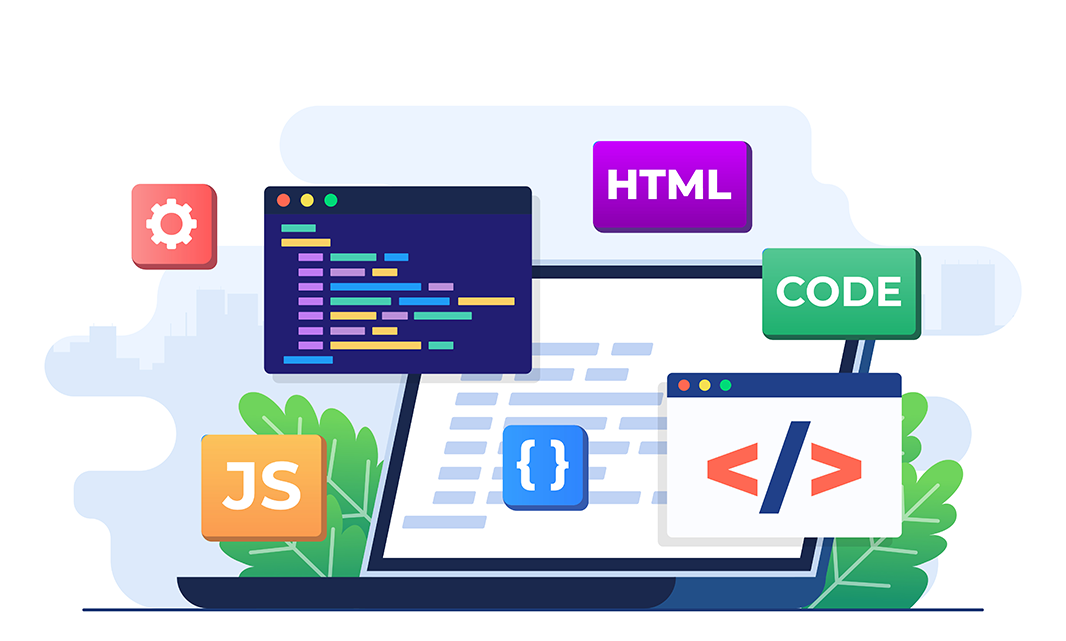
Supporting Agile Development
Mastering Full Stack Software Development, leveraging MEAN & MERN stacks to craft scalable, high-performance applications with cutting-edge innovation, logic-driven architecture, and precision coding. Our approach ensures seamless testing, deployment.
Supporting Agile Development
· Modularity: Component-based architectures (React/Angular) enable parallel development by Agile teams.
· CI/CD Pipelines: Integrate automated testing, Docker, and Jenkins for continuous deployment.
· Sprint-Friendly: Rapid prototyping with Express.js and reusable components accelerates MVP delivery.

MEAN vs. MERN: Choosing the Right Stack
Factor | MEAN Stack | MERN Stack |
Frontend | Angular (structured, TypeScript) | React (flexible, JSX) |
Learning Curve | Steeper due to Angular’s complexity | Easier with React’s modular approach |
Performance | Optimized for large-scale apps | Faster UI updates via virtual DOM |
Use Cases | Enterprise apps, real-time systems | SPAs, e-commerce, dynamic interfaces |
Why Partner with Excels Tech Solutions?
· End-to-End Expertise: From MEAN stack REST APIs to MERN-powered PWAs, we deliver scalable solutions tailored to your business.
· Agile Collaboration: Transparent sprints, daily standups, and client feedback loops ensure alignment with your goals.
· Proven Results: Optimized apps with 50% faster load times, 30% lower bounce rates, and seamless scalability.
Transform your vision into reality with Excels Tech Solutions LLC—where MEAN and MERN stacks meet Agile excellence.


Common Technical Advantages of MEAN & MERN Stacks
Unified JavaScript Ecosystem
Our architecture promotes code reusability by allowing shared logic and libraries across both client and server, significantly reducing redundancy. Development is accelerated through the use of a single language—JavaScript—across the entire stack, minimizing context switching and streamlining workflows. The setup offers full-stack flexibility, enabling smooth integration of APIs, third-party tools, and microservices.
On the backend and middleware side, we utilize Express.js, a lightweight and efficient framework ideal for building RESTful APIs and managing middleware functions such as authentication and routing. Complementing this is Node.js, with its event-driven, non-blocking I/O model, making it perfect for real-time applications and scalable microservices.
MEAN vs MERN Stack – Key Differentiators
The MEAN stack uses Angular for the frontend, which is great for enterprise-level applications with two-way data binding and TypeScript. It also utilizes Node.js for real-time capabilities and MongoDB, a flexible NoSQL database that scales easily.
The MERN stack uses React, known for fast rendering and dynamic user interfaces, ideal for single-page and mobile apps. Its component-based architecture promotes code reusability, while Redux enhances state management and app maintainability.
In short, MEAN is better suited for large, structured applications, while MERN is ideal for dynamic, fast-rendering apps.


Core Business Benefits (MEAN & MERN)
Rapid development is facilitated by the use of pre-built UI libraries such as Angular Material and React components, which can accelerate the development process by 30–40%. Additionally, the modular structure of modern frameworks supports Agile workflows, enabling quick iterations and streamlined project management. From a cost efficiency standpoint, the entire technology stack is open-source, eliminating licensing fees. Furthermore, maintaining a single codebase allows developers to deploy applications across web, mobile, and desktop platforms, reducing development time and resources. In terms of scalability and performance, technologies like Node.js support clustering, and MongoDB offers sharding capabilities, enabling the system to handle millions of users efficiently. The cloud-native design further enhances flexibility, making it ideal for elastic deployment on platforms such as AWS, Azure, or Google Cloud Platform (GCP).
Strategic Flexibility (MEAN vs MERN)
Choosing between the MEAN (MongoDB, Express, Angular, Node.js) and MERN (MongoDB, Express, React, Node.js) stacks offers long-term strategic flexibility. Both stacks are backed by strong developer communities and receive regular updates, ensuring they remain modern and reliable. What makes this approach future-proof is the ability to switch between Angular and React based on project requirements. Angular offers a structured, enterprise-grade framework ideal for large-scale applications, while React provides the flexibility and speed needed for dynamic, interactive user interfaces. This adaptability allows businesses to tailor their tech stack to evolving goals without overhauling the entire system.

